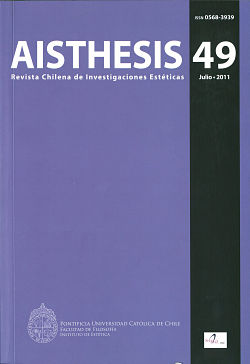Experiencing words, secondary meaning and poetry. About the idea of a properly human language in Wittgenstein
Main Article Content
Abstract
Between 1946 and 1949, having concluded his long-term work on the fi rst part of Philosophical Investigations (1929-1945), Wittgenstein repeatedly comes to deal with topics related to two notions he coined as «experience of a word» (Worterlebnis) and «secondary meaning» (sekundäre Bedeutung). The present article has the following objectives: to expose, distinguish and interrelate the expressions «experience of a word» (or «experience of meaning») and «secondary meaning» (sections 2, 3 and 4); to question a dominant interpretation according to which the so called «meaning-blindness» (Bedeutungsblindheit) amounts to the incapacity to perceive the subtleties of poetic language and to suggest alternatively that the author is pointing to the idea of a specifi cally human language (sections 5 and 6); to clarify the relation between secondary meaning and metaphor (section 7); and to explain what can all this mean with respect to poetry as a language game (section 8).
Downloads
Article Details

This work is licensed under a Creative Commons Attribution-NonCommercial-ShareAlike 4.0 International License.
All contents of this electronic edition are distributed under the Creative Commons license of "Attribución-shareAlike 4.0 Internacional" (CC-BY-SA). Any total or partial reproduction of the material must mention its origin.
The rights of academic works published in this publication belong to their authors., who grant to AISTHESIS: Revista Chilena de Investigaciones Estéticas the license for its use. The management of the permits and the authorization of the publication of the images (or of any material) that contains copyright and its consequent rights of reproduction in this publication is the sole responsibility of the authors of the articles
